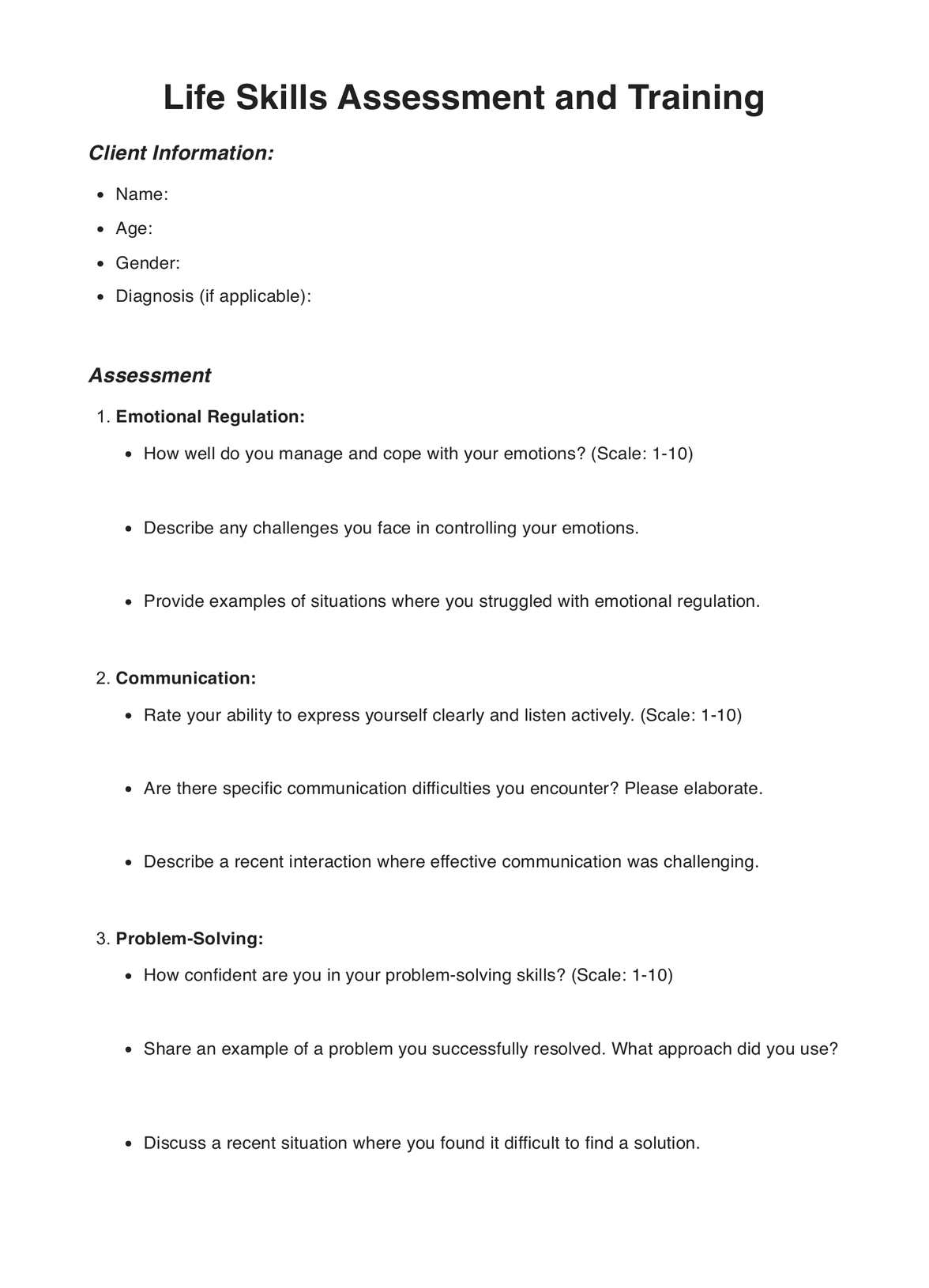The Life Skills Profile is designed for healthcare professionals, therapists, counselors, social workers, educators, and anyone working to improve life skills in individuals. It's particularly beneficial for those with mental health challenges, substance abuse issues, or those seeking to enhance their independence.

Life Skills Profile
Enhance healthcare with Life Skills Profile and help your clients master essential abilities for improved well-being. Unlock a healthier future today.
Life Skills Profile Template
Commonly asked questions
The assessment involves a structured process where individuals rate their skills in various areas on a scale of 1 to 10. They also describe challenges and provide examples. Based on the assessment results, a personalized training plan is developed to target specific skill areas.
The training plan is based on the assessment results. It outlines specific strategies, techniques, and activities to enhance skills where improvement is needed. Regular progress checks ensure the plan is effective and can be adjusted.
EHR and practice management software
Get started for free
*No credit card required
Free
$0/usd
Unlimited clients
Telehealth
1GB of storage
Client portal text
Automated billing and online payments











